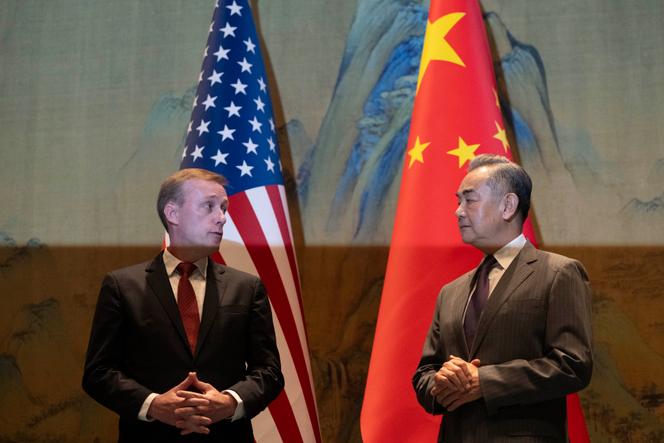


On the shores of a lake about 60 kilometers northeast of Beijing, the two officials met for in-depth discussions from Tuesday, August 27, to Thursday, August 29. No major diplomatic breakthrough was expected between US National Security Adviser Jake Sullivan and Chinese Foreign Minister Wang Yi. But the mere fact that these high-level representatives of the two great powers destined to clash are exchanging views on a regular basis, that they are able to say things to each other, that a channel of strategic communication has been opened, represents progress in itself. This is the first visit by a US national security adviser to Chinese soil since 2016.
Sullivan and Wang were to discuss China's support for Russia in the war in Ukraine, which has enabled the Russian military-industrial apparatus to keep up with the conflict; tensions in the South China Sea; and the increasing restrictions imposed by the US on the transfer of microchips and other high-tech components to China. But above all, as always, to raise the worst subject of all in China-US relations: the fate of the island of Taiwan, which China considers one of its provinces, despite its de facto independence, and which the US supports.
Donald Trump's aggressive rhetoric, years of shutdown and accusations during the Covid-19 pandemic and then a Chinese spy balloon's flight over US territory in early 2023 had pushed the world's most important bilateral relationship to a breaking point. These setbacks came on top of the steady deterioration in China-US ties as a result of China's hardening sunder Xi Jinping and the rapid development of its military capabilities – seen in Washington as the greatest challenge facing the US. At the same time, the US has continued its efforts to strengthen a network of solid alliances in the region and curb China's technological catch-up – viewed by Beijing as a policy of "containment" representing the greatest obstacle to its rise.
"It's about dispelling misperceptions and preventing this competition from turning into conflict," an American official summarized ahead of the trip. "In recent years, the relationship between China and the US has been full of twists and turns," Wang remarked on Tuesday, welcoming the return to communication. "The key," he said, "is to keep to the overall direction of mutual respect, peaceful coexistence and win-win cooperation."
Wang, who is also director of the Communist Party's Central Foreign Affairs Commission Office, a position even more decisive than his ministerial rank, was meeting Sullivan for the fifth time in 15 months. As in any good diplomatic intrigue novel, the encounters began away from the public eye in a hotel in Vienna, the city of equidistance and neutral ground between great powers. It was in the private rooms of a five-star hotel that Sullivan and Wang met for eight hours of frank discussions over two days in May 2023, four months after the appearance of the mysterious spy balloon that had flown over the US, freezing all contact.
You have 35.32% of this article left to read. The rest is for subscribers only.
